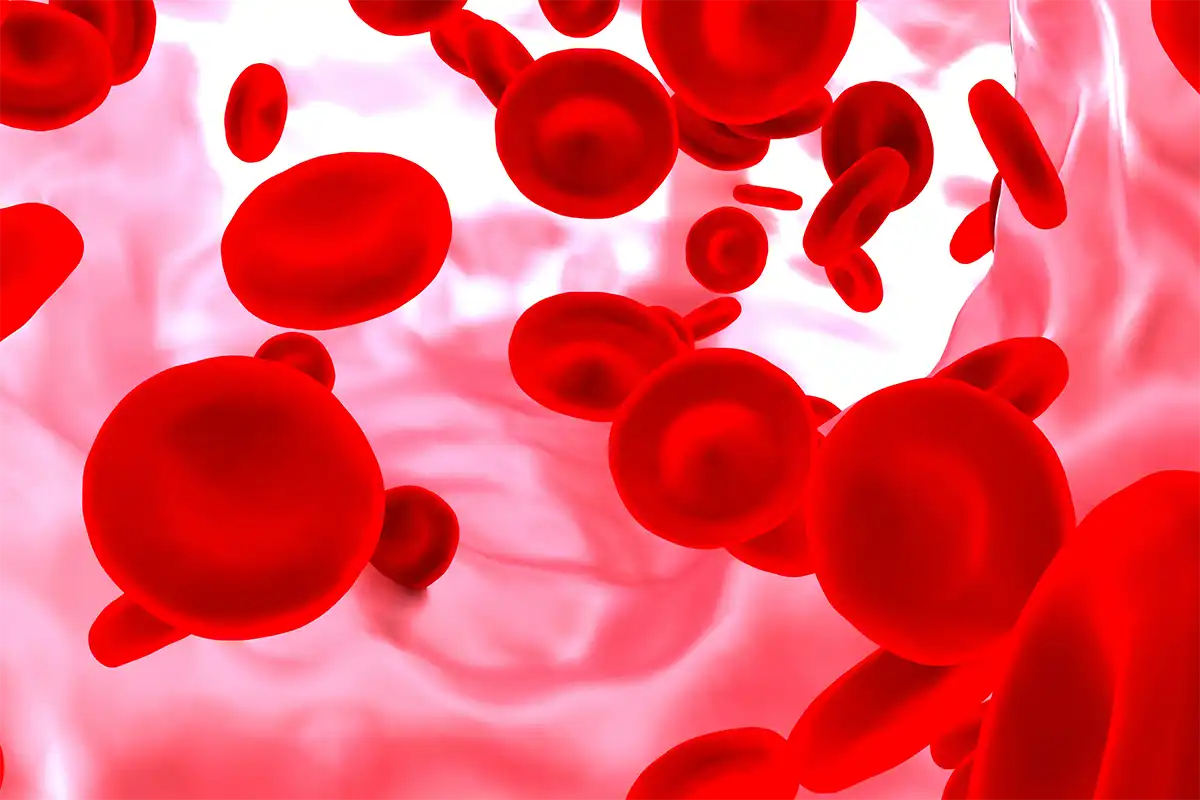Naproxen, an NSAID (Non-Steroidal Anti-Inflammatory Drug), is mainly used as pain medication and is known for alleviating pain like backpain or muscle pain, inflammation, swelling, or joint stiffness. Approved by FDA in 1976, it is a drug with a volume of distribution found to be 0.9 l/kg and a plasma half-life of 12-17hr. Moreover, it gets metabolized by the liver and has 100% oral absorption.
Naproxen is both OTC and a prescription medicine. In the USA, the OTC (over-the-counter) brand name is Aleve, but does it thin blood?
What is Blood Thinning?
The reduced ability of blood to clot is referred to as blood thinning. Blood comprises four main components plasma, red blood cells, white blood cells, and platelets. Among these four component platelets are the tiny cells responsible for blood clotting.
Adequate blood clotting is essential to prevent too much blood loss or other potentially dangerous complications. To this extent, thinning of blood can also be defined as having too few platelets, and the person with low numbers of platelets suffers from the condition referred to as thrombocytopenia.
The average level of platelets in the blood may range from 150,000 to 450,000 per milliliter (ml). Platelets count below 150,000 may lead to thinning of the blood. The thin blood is typically asymptomatic but can cause excessive bruising and bleeding.
Is Naproxen A Blood Thinner?
The medications or drugs that prevent blood from clotting are blood thinners. Naproxen, although not a blood thinner, still causes temporary and weak blood thinning, which disappears within 3-4 days of consumption of the last dose.
Many people who accompany over-the-counter pain-killing drugs such as nonsteroidal anti-inflammatory drugs including (naproxen) experience blood thinning effects. It makes platelets less sticky, which, in return, slows their clotting capacity or slows the slot formation, promoting bleeding.
Can Naproxen Cause Blood Clotting? What Will Be The Effect?
Some NSAIDs (including naproxen) increase the chances of blood clotting. However, the mechanism is not entirely known. The new studies show even though the combination of NSAIDs and anticoagulants does increase bleeding risk, at the same time, it does compensate for the cause by a similar increase in blood clots which would be favorable for patients.
The Blood Clotting Effects Caused by Naproxen include;
Heart Attack
The high dosage of naproxen or its long-term use increases the risk of fatal heart stroke or attack in patients with heart diseases or it also cause increase blood pressure. That does not mean that people without heart diseases do not experience any heart attack or stroke. They are also vulnerable to that.
Bleeding Effect
Naproxen increases the risk of blood clotting. It hinders platelet aggregation, which is an essential step in blood clotting. And due to this hindrance, the time for bleeding to stop can be increased and lead to severe bleeding. However, bleeding is not the NSAIDs only risk for people taking blood thinners.
Thrombosis
The cyclooxygenase (Cox) pathway has a role in many pathophysiological and physiological events such as vascular tone, pulmonary fibrosis, and tissue fibrosis, bronchial muscle secretion in the lungs. COX-2 prostaglandins pgE2 and PgI2 production are responsible for vasodilation, inflammation, fever, and pain.
The risk of venous thromboembolism is arised by two folds or more significantly by using selective or non-selective NSAIDs. The thrombosis risk is increased by PGI2 inhibition, which has an antithrombotic effect with COX2 inhibition. In addition, 95% of antithrombotics occur by suppressing COX1. High-dose naproxen may perform this antithrombotic effect. Na+/k+ (NHE) exchanger is activated by inhibiting pg synthesis by NSAIDs. Activation of NHE may result in an increased risk of thrombosis.
Important Note: In 2009, a warning about bleeding risks was added to the labels of all OTC drugs, including NSAIDs required by the FDA.
Naproxen Common Side Effects
Naproxen is a propionic acid derivative related to ibuprofen and ketoprofen with analgesic and antipyretic properties chemically identified as (+)-6-methoxy-a-methyl-2-naphthalene acetic acid. The stimulation of pain receptors causes the analgesic effect of naproxen by prostaglandins and their inhibition. Its anti-inflammatory effect includes Peripheral inhibition of prostaglandin synthesis because of inhibition of the enzyme cyclooxygenase. Some side-effects caused by naproxen include;
- Heartburn
- Constipation
- Nausea
- Abdominal pain
- Headache
- Dizziness
- Itchy skin
- Drowsiness/Sleepiness
- Depression
- Fatigue
- Skin eruption
- Dyspnea
- Ringing in the ear
- Peripheral edema
How Can One Avoid Blood Clotting?
A blood clot is prevented in the following ways:
- Wear socks, stockings, and loose-fitting clothes.
- From time to time, raise your legs 6 inches above your heart.
- If a doctor prescribes, wear a unique stocking called compression stocking.
- As per the doctor's advice, do exercise.
- Do not sit or stand for 1 hour at a time.
- Eat less salt.
- Try not to cross and try not to bump or hurt your legs.
- Avoid a pillow under your knees to avoid blood clotting.
- The blood clots can be avoided by raising the bottom of your bed 4 to 6 inches with books or blocks.
- Take all medicines prescribed by the doctor.
- Take food that helps in blood thinning to avoid clots, such as some herbs and spices, which include herbs that contain salicylates (a natural blood thinner), cayenne, pepper, cinnamon, curry powder, dill, ginger, licorice, oregano, paprika, peppermint, thyme, and turmeric.
- Meanwhile, some fruits can aid in blood thinning. These include blueberries, cherries, grapes, oranges, prunes, raisins, strawberries, and tangerines.
Conclusion
Even though the present reference is a prescription drug, there was a time when naproxen was also available without a prescription. However, it is advisable for patients already taking blood-thinning drugs and naproxen to escape from the increased risk of bleeding because blood thinners and NSAIDs, when taken together, boost the possibility of heart risks. And togetherly we cannot say profoundly naproxen is a complete blood thinner, the experience varies.



 01 Jul 2022
01 Jul 2022


